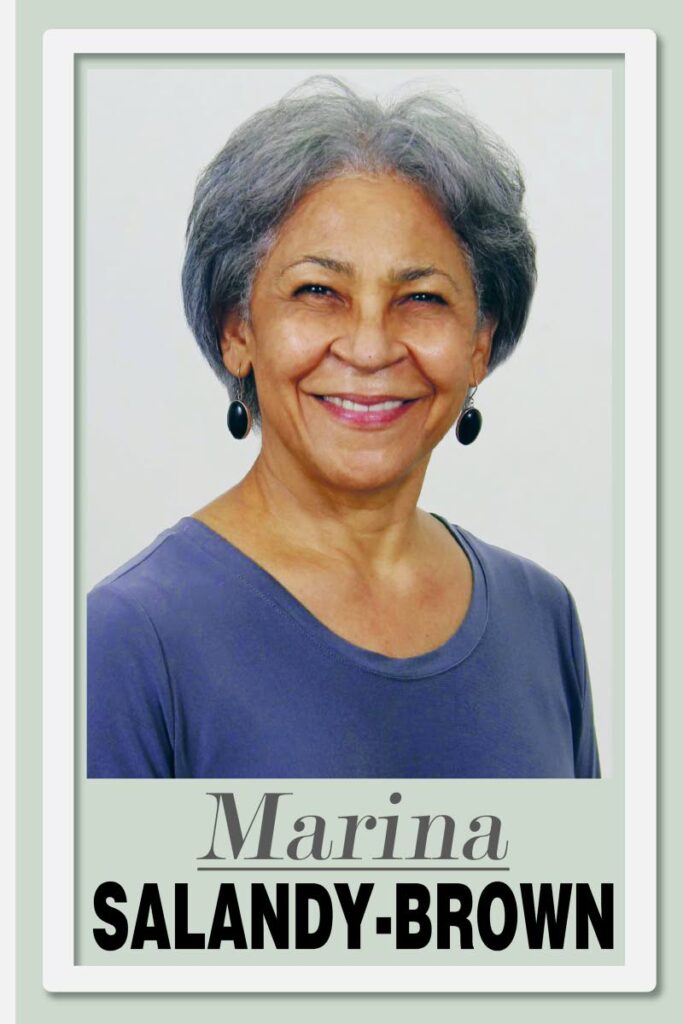Indenture: Surviving history

The citizens of Trinidad and Tobago probably enjoy more public holidays than any other country in the world. There is hardly a month that does not include a special day that merits, we think, some sort of celebration and time off work.
Frankly, I find it excessive, given that we work no harder than people residing elsewhere on the planet. The cost to the Treasury and to private business must be incalculable.
This weekend is four days long, officially. Unofficially, it started the week before and included last weekend as well.
It was CAL’s explanation of why Tobago flights were scarcely available a whole week before the official holiday began on May 30. If you add that taper effect, we must be working only ten months a year. Does all that extra limin’ make us happier? Perhaps.
Does it entice us to work better? Definitely not.
Many people who are supposedly full-time employees of ministries such as Works and Transport, Public Utilities, and Agriculture still do three-hour days before starting their other non-government jobs.
My deceased mother’s long-standing handyman was a works department supervisor who turned up at least thrice weekly at 9 am for several hours before going to some other person’s house. He was not alone. Apparently, it is common practice. I guess if you are holding down three or four jobs you do need a break.
The other people who need the long holidays are the gun-toting criminals who really get down to some serious killing. It’s obviously when they can settle lots of scores. It is sad that with such a huge financial cost to our country, many people forget why public holidays are special.
May 30 was one of the significant holidays, marking as it did the Christian day of Thanksgiving in commemoration of the death and resurrection of Jesus Christ and the renewal of Christian faith. May 30 was Indian Arrival Day, too, although it is also celebrated by other countries where subcontinental Indians went as indentured labour – South Africa, Mauritius, Fiji, Guyana, Suriname, and Jamaica. In Trinidad, 2024 marks the 179th anniversary of Indian arrival.
In his commemorative message, the PM reminded us of the “arduous struggles” of those contracted arrivants, all 150,000 of them, who came upon the abolition of slavery, between 1845 and 1917, from India to TT, of their “fearlessness and courage.” They had little idea where they were going or the perils of their three-month journey across the dark waters of the Indian and Atlantic Oceans.
Dr Rowley recalled, too, that the Indians did not suffer from “cultural erasure” as African slaves had and were allowed to keep their names and religions, which is true, but as Gaiutra Bahadur shows in her highly readable Coolie Woman (published 2014 by University of Chicago Press) the identity of her indentured great-grandmother was controlled by the colonizers by misnaming her a “coolie woman.” Whoever they were in India, everyone arrived as “coolies,” “a stock character possessing stereotyped qualities, which shaped who she was by limiting who she could be.”
It is a word pregnant with meaning and as heavy with history as the word “slave.” No matter what one becomes, in the minds of those who sought to control them, all our ancestors who came from Africa and India remain reduced by that period of our trajectory and that naming.
Notwithstanding, the Indian community can stand proud of its achievements. As Dr Rowley says, the successes of the descendants of those indentured workers, who now number about half our population, “encompass the whole range of this country’s achievements.”
I am currently reading a self-published book, Grounded: One Eye Open, by a former BWIA pilot, Tajo Amar Beharry, which is the account of his 30-year fight for compensation after partially losing the sight of an eye (and his livelihood) while working, but his inspiring story starts with his 1950s childhood, when his family of five lived in a kothri – Hindi for a small room under a house.
Sheer determination to become a pilot overcame poor social and educational prospects and the love of family and enlightened religious guidance helped engender deep resilience and brought eventual success.
As a child, I spent blissful holidays in rural Trinidad visiting the children of the Indian farmers who worked on the government agricultural experimental stations that my father ran. Now I know they lived in abject poverty but to me it was a romantic world.
Many of the barefooted children did not attend school, and their dwellings were of mud or wooden huts, the walls papered over with magazine pages, the roofs of carat leaves. Swinging in the jute or flour-sack hammocks hanging on short ropes was my favourite, as I watched women with thick anklets brush the yard of dry earth into pretty patterns, using cocoyea brooms. Everyone ate off banana leaves with our fingers – just two or three, no messy hands.
Today, such realities are not widely known by our people and we have lost the sense of wonder at how long is the road we have all travelled.

Comments
"Indenture: Surviving history"